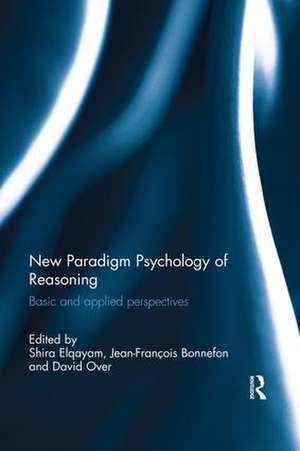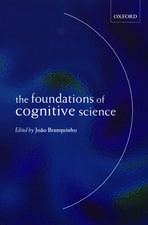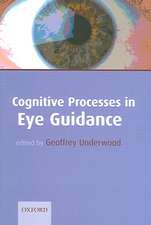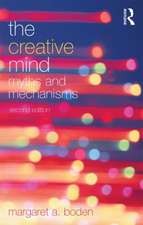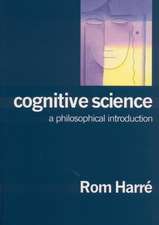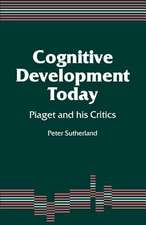New Paradigm Psychology of Reasoning: Basic and applied perspectives
Editat de Shira Elqayam, Jean-François Bonnefon, David Overen Limba Engleză Paperback – 4 sep 2018
The new paradigm aims to integrate the psychology of reasoning with the study of judgement and decision making, leading to a much more unified field of higher mental processing. This collection showcases these recent developments, with chapters on topics such as the difference between deduction and induction, a Bayesian formulation of faint praise, the role of emotion in reasoning, and the relevance of psychology of reasoning to moral judgement. This book was originally published as a special issue of Thinking & Reasoning.
| Toate formatele și edițiile | Preț | Express |
|---|---|---|
| Paperback (1) | 299.67 lei 6-8 săpt. | |
| Taylor & Francis – 4 sep 2018 | 299.67 lei 6-8 săpt. | |
| Hardback (1) | 764.62 lei 6-8 săpt. | |
| Taylor & Francis – 29 iun 2016 | 764.62 lei 6-8 săpt. |
Preț: 299.67 lei
Preț vechi: 341.64 lei
-12% Nou
Puncte Express: 450
Preț estimativ în valută:
57.35€ • 59.65$ • 47.34£
57.35€ • 59.65$ • 47.34£
Carte tipărită la comandă
Livrare economică 15-29 aprilie
Preluare comenzi: 021 569.72.76
Specificații
ISBN-13: 9780367023829
ISBN-10: 0367023822
Pagini: 246
Dimensiuni: 156 x 234 x 22 mm
Greutate: 0.46 kg
Ediția:1
Editura: Taylor & Francis
Colecția Routledge
Locul publicării:Oxford, United Kingdom
ISBN-10: 0367023822
Pagini: 246
Dimensiuni: 156 x 234 x 22 mm
Greutate: 0.46 kg
Ediția:1
Editura: Taylor & Francis
Colecția Routledge
Locul publicării:Oxford, United Kingdom
Public țintă
Postgraduate and UndergraduateCuprins
Introduction: New paradigm psychology of reasoning Part I: Probability and degrees of belief 1. Reasoning to and from belief: Deduction and induction are still distinct 2. Scope ambiguities and conditionals 3. Uncertainty and the de Finetti tables 4. The new psychology of reasoning: A mental probability logical perspective 5. Dynamic inference and everyday conditional reasoning in the new paradigm Part II: Utility and social pragmatics 6. New ambitions for a new paradigm: Putting the psychology of reasoning at the service of humanity 7. When emotions improve reasoning: The possible roles of relevance and utility 8. James is polite and punctual (and useless): A Bayesian formalisation of faint praise Part III: Rationality and dual processing 9. Matching bias on the selection task: It’s fast and feels good 10. Rationality in the new paradigm: Strict versus soft Bayesian approaches
Notă biografică
Shira Elqayam is a Reader in Cognitive Science at De Montfort University, Leicester, UK. Her work focuses on reasoning, normative thinking, and rationality.
Jean-François Bonnefon is a Senior Research Scientist at the Toulouse School of Economics, France, where he studies the psychology of rational thinking and behavior.
David Over is an Emeritus Professor in the Psychology Department at Durham University, UK. His main focus is on the psychology of reasoning.
Jean-François Bonnefon is a Senior Research Scientist at the Toulouse School of Economics, France, where he studies the psychology of rational thinking and behavior.
David Over is an Emeritus Professor in the Psychology Department at Durham University, UK. His main focus is on the psychology of reasoning.
Descriere
Emphasising degrees of belief, utility, and dual processing, the new paradigm in psychology of reasoning aims to integrate the study of reasoning with the field of judgement and decision making. This collection showcases recent developments in the field, with chapters on topics such as the difference between deduction and induction, a Bayesian formulation of faint praise, the role of emotion in reasoning, and the relevance of psychology of reasoning to moral judgement. This book was originally published as a special issue of Thinking & Reasoning.
